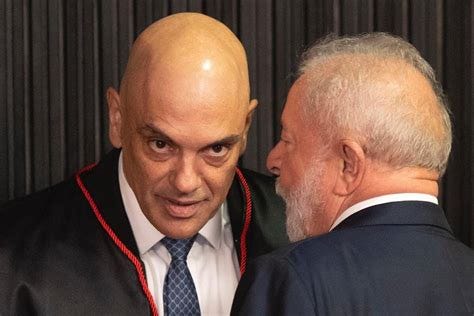Lula's Once Beloved IACHR Seat of Human Rights Has Been Removed from Brazil
Amid recent tensions in relations with the United States, the Brazilian government, at the request of President Luiz Inácio Lula da Silva (PT), decided not to pursue its bid for a seat on the Inter-American Commission on Human Rights (IACHR), affiliated with the Organization of American States (OAS).
The IACHR is responsible for analyzing reports of human rights violations, including cases involving Brazil’s Supreme Federal Court (STF)
ICYMI - Justice Moraes, of the STF, has been overstepping his powers internally as well as globally ever since he was appointed to the bench
This decision allowed Mexico, represented by José Luis Caballero Ochoa, to secure the position.
The vote concluded with 23 votes for Caballero Ochoa, while the Brazilian candidate, Fábio Sá e Silva, received 3 votes - not exactly a vote of confidence of the IACHR in the justice system of Brazil.
At the end of June, Cuban-American activist Rosa María Payá - backed by the U.S. government and Trump-aligned allies - was elected to the IACHR.
A vocal critic of leftist dictatorships such as Cuba and a strong advocate for freedom of expression, Payá is expected to push for a more assertive stance by the commission on these issues - which would make her target Brazil and several other South and Central American countries.
Why Does This Matter?
In the words of Paraguay’s Foreign Minister Rubén Ramírez Lezcano during an interview with American Thought Leaders host The Epoch Times Senior Editor Jan Jekielek (4 Mar 2025)…
The Organization of American States is an organization that was created in 1948, but was born before of that with the inter-American system.
And that is quite important for us because our main proposal is the integration, not only in economy and trade, but also political integration.
So there's a lot of suspicion of multilateral institutions, clearly here in the U.S. with, you know, the U.S. recently withdrawing from the WHO, UN Human Rights Council.
Jan: Maybe explain to me why this multilateral structure of the OAS is so important for you.
It's important because we are discussing about 4 pillars for the development and for the political stability in our hemisphere.
The first one, democracy.
We need to extend democracy.
In the last years, the OAS lost three country members, Venezuela, Nicaragua, and Cuba, the first one.
And we need to work, strengthening the institution, working on education, on democracy, and strengthening the election system program that we have in Latin America.
Yesterday, we celebrated the election in Ecuador, for example.
And that means that it's quite important to have all the institutions supporting those democratic processes.
Secondly, we are working in human rights.
Human rights is very important because deal not only with democracy, deal also with development, because job opportunities, the income of the people in their own countries, and dealing also with security issues.
Those 4 pillars that we are talking about, democracy, human rights, development, sustainable, and also security, are the most important challenge that we have in our hemisphere.
And those challenges doesn't have any relation with the size of the country.
That has a relation with the needs of every country.
The United States is dealing with security.
Migration is dealing with trade.
The exchange.
And that means that we need the space to debate and to build consensus among those countries in our hemisphere.
The Western Hemisphere is quite important, not only for our country, but also for the United States.
Well, right.
Clearly, because of this interest that we've just been describing, of course.
Given all this that Lula has forfeited, the falling dominoes in his administration are now accelerating.
And Lula could not care less - if you want to know how Lula is going to behave and react, just study the actions and behavior of Fidel Castro, his lifetime idol.





